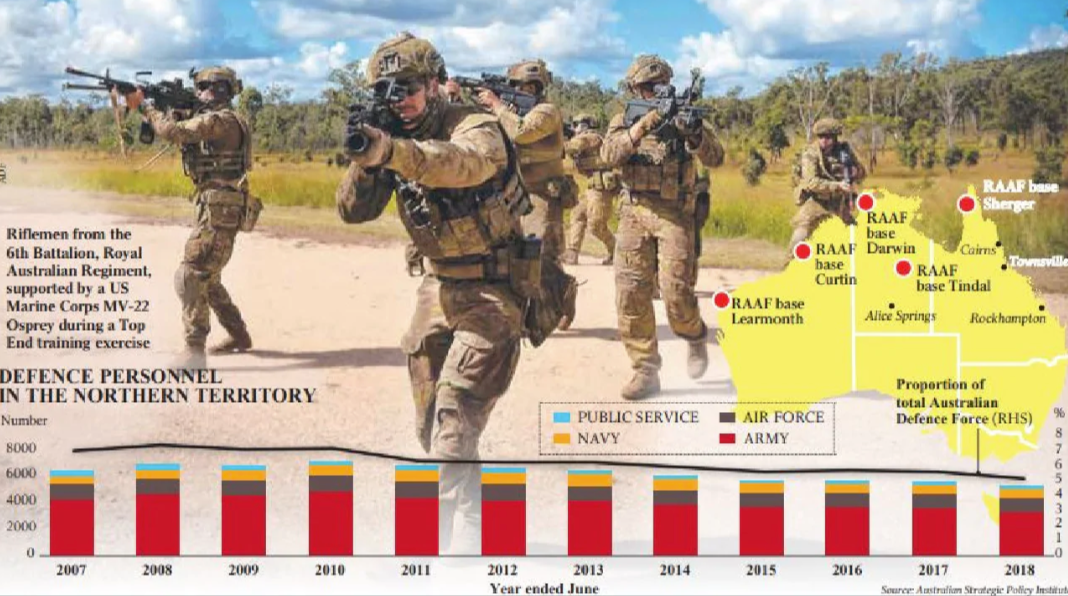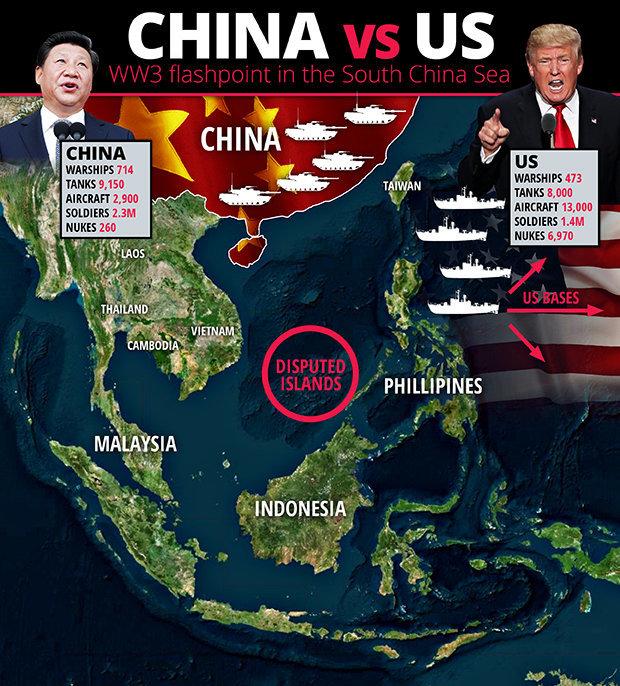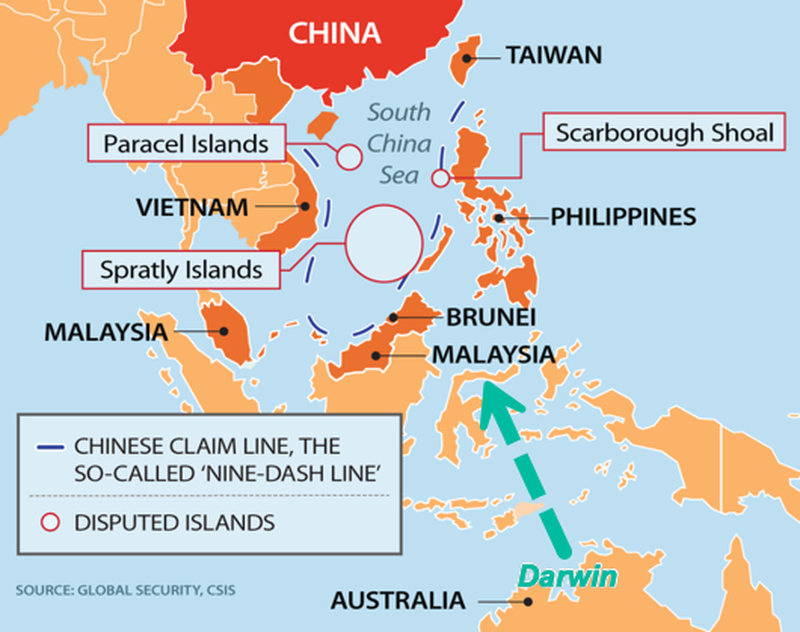Expanding on our June report, that outlined Australia is constructing a new naval port on its northern coast to counter a rising China in the Indo-Pacific region, Australian Defence Minister Linda Reynolds said the government recognized the “vital importance” of militarizing northern Australia for national security purposes.
Senator Reynolds said, “over $8 billion will be invested in defense infrastructure in the Northern Territory alone. Northern Australia is key to Australian international engagement in support of our strategic partnerships.”
This comes at a time when Washington and its strategic allies are falling into Thucydides Trap, referring to China, the rising power, challenging the US, the status quo, could one day lead to a shooting war somewhere in the heavily contested South China Sea and western Pacific waters.
Senator Reynolds said Australia had been warned it must militarize its northern borders amid threats of Chinese expansion in the Indo-Pacific region and prepare for the US losing its “military primacy” in the area.
The Australian Strategic Policy Institute (ASPI) and United States Studies Centre are expected to sound the alarm Monday on the lack of troops and military hardware in northern Australia and the need to increase weapon stockpiles and fuel reserves.
ASPI’s report requests the government to stress test defense, intelligence, and border security agencies in the North against sudden threats.
ASPI suggests troop deployment in the North is at decade lows calls for a “single scalable defense and national security ecosystem.”
Senator Reynolds said about 13,000 Australian Defence Force (ADF) troops are stationed in the North, and “thousands more participate in operations or training scenarios across the North annually.”
“We host over 2,500 US Marines and Air Force members in Darwin yearly, providing security benefits for Australia and the United States by deepening our interoperability and enhancing capabilities through increased combined training and exercises, stepping up our engagement with regional countries, and better position both nations to respond to crises in the region,” she said.
The US Studies Centre is also expected to release its report on Monday, stating that Washington no longer “enjoys military primacy in the Indo-Pacific” and that its ability to “uphold a favorable balance of power is increasingly uncertain.”
The reshifting of focus on northern Australia and the Indo-Pacific region comes as China is attempting to become a dominating power in the area.
Both reports stress: Australia needs to fund military infrastructure projects across the North to combat a rising China.
The ADF operates army bases in Darwin and Townsville; the Royal Australian Air Force (RAAF) operates stations in Darwin, Katherine and Townsville; and the Royal Australian Navy (RAN) operates naval ports at Trinity Bay and Darwin.
John Coyne, author of ASPI’s report, Strong and Free?, indicates northern Australia is becoming the ADF’s forward operating base or its “lily pad to another forward position within the Pacific or the first or second island chain. There’s a need to reconceptualize northern Australia, defined as those areas north of the 26-degree south parallel, as a single scalable defense and national security ecosystem.”
Coyne said the forward operating base would allow the ADF to be in a “state of readiness to support a range of defence contingencies with little advance warning.”
The US Studies Centre report offers nine suggestions to respond to a rising China that is threatening the US’s supremacy in the Indo-Pacific region. It states that the readiness of US forces has been “eroded” after two decades of “near-continuous combat and budget instability.”
“Given the stresses of preparing for a possible conflict with China … the joint force will have to scale back other responsibilities, particularly in secondary regions like the Middle East,” report authors Ashley Townshend, Brendan Thomas-Noone and Matilda Steward said.
Writing in The Australian today, Alan Dupont, chief executive of geopolitical risk consultancy the Cognoscenti Group and member of the Northern Territory’s Strategic Defence Advisory Board, says “serious threats are emerging with disconcerting rapidity.”
“The problem is that we are underdone on defence infrastructure and manufacturing in the north and haven’t done nearly enough to think through, and invest in, the sustainment of forces deployed from the north,” Dupont writes.
“At a national level our fuel reserves and refining capacity are too thin. In a crisis, we can’t rely on others to provide the fuel we need for ADF operations and national emergencies. But a land-based, or offshore floating refinery in the North could help solve this problem.”
The US and its allies are preparing for war with China. Northern Australia could become a “lily pad” for coalition forces, used to attack Chinese militarized islands in the South China Sea.
via ZeroHedge News https://ift.tt/2KTaJKa Tyler Durden


